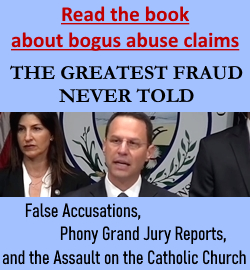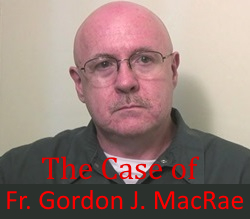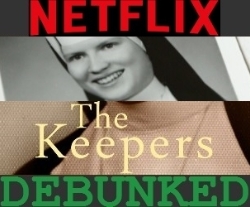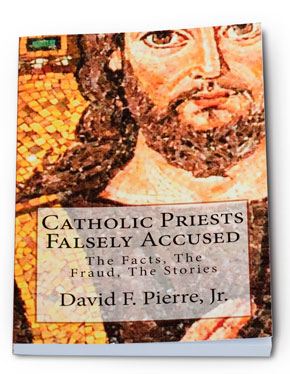As Christmas Day approached, a host of cable television outlets were not afraid to take to the airwaves with "specials" that challenge conventional Christianity. Episodes from CNN, the History Channel, and National Geographic presented discredited and dubious information surrounding the life of Jesus and the history of early Christianity.
1. National Geographic took to the airwaves with "The Secret Lives of Jesus." The episode presented dramatized fables of Jesus as a mischievous youth who performs insidious acts and miracles. Jesus is also shown to have had a sensual relationship with Mary Magdalene. (Thankfully, the channel presented an expert who underscored that there is no evidence of any such intimacy.)
Such wild tales are based on contrived texts written much after the life of Jesus. They were Gnostic gospels, like the "Gospel of Thomas" and the "Gospel of Judas," written in the second and third centuries. Early church fathers, like St. Ireneaus (in 180 AD) and Origen of Alexandria (3rd century), roundly rejected these books as spurious, false, and fabricated. (For further reading on this, I've listed sources below. See also this review by David DiCerto.)
2. National Geographic also repeated their 2004 "investigation" hosted by Elizabeth Vargas, "Unlocking Da Vinci's Code." The channel chose to repeat their show despite the fact that numerous scholars, through books and videos, debunked nearly each and every outlandish claim in Dan Brown's fictional novel. (We addressed this last fall here.)
3. The History Channel aired a two-part "Beyond the Da Vinci Code." This is the cable network's own investigation into the Da Vinci nonsense. Again, good scholarship has debunked Dan Brown's novel. (See the reading list below.)
4. CNN presented "After Jesus." In this case, to its credit, the network appeared to make an honest effort at accuracy and fairness. However, the show was not without its critical faults. For one, the special gave a lot of air time to liberal "religious studies" scholar Bart Ehrman, a self-described "happy agnostic" whose scholarship has come under serious question (here, here, here, here, here, and here, for example). At no point during the special did CNN divulge that Ehrman is a non-believer.
In a number of instances, the special presented dubious opinion as historical fact. For example, the special claimed that the Gospels were not written "as history, but as a divine story." Such a claim flies in the face of the very words of the Gospels. Take, for example, the first words of the Gospel of Luke:
Inasmuch as many have undertaken to compile a narrative of the things which have been accomplished among us, just as they were delivered to us by those who from the beginning were eyewitnesses and ministers of the word, it seemed good to me also, having followed all things closely for some time past, to write an orderly account for you, most excellent The-oph'ilus, that you may know the truth concerning the things of which you have been informed. (Luke 1:1-4, RSV)
The special also made unsubstantiated claims surrounding the dates of the writing of the Gospels. The special affirmed (rather than opined) that the Gospel of Mark was written in 65 A.D., and the others were written "15 to 20 years later." Such a stance contradicts a substantial wealth of strong and valuable scholarship that posits that all of the Gospels were written before 70 A.D. (See sources below.)
The special also contained a couple of glaring contradictions. In a segment on second and third-century Gnostic "gospels," the narrator said that these texts were "suppressed, hidden, or destroyed" by the Church. Yet about 15 minutes later, Bart Ehrman (of all people) directly contradicts this and says that no such thing happened! (The texts were merely denounced by church leaders, and they "simply didn't copy them," says Ehrman.)
In another segment, on the role of women in early Christianity, Ehrman claimed that the early church "suppressed" women. He also described first-century culture as "completely egalitarian." Hmmm. Then why did so many women flock to Christianity in its early days if it "suppressed" them? Ehrman's statement doesn't seem to make sense in light of first-century Christianity and history. (Check out "Does the Catholic Church Hate Women?" by Christopher Kaczor. ("Apparently the justice of Christian morality offered a refreshing perspective to women in the ancient world accustomed to husbands who cheated and left at will."))
…
"The Secret Lives of Jesus"? "Unlocking the Da Vinci Code"? "Beyond the Da Vinci Code"? "After Jesus"? I guess this is the way that cable television celebrates Christmas. Oh, well.
+_+_+_+_+_+_+_+_+
Reading list:
Debunking inauthentic "gospels," the Da Vinci Code, and "alternative Christianities":
What Have They Done with Jesus?: Beyond Strange Theories and Bad History–Why We Can Trust the Bible by Ben Witherington III
Reinventing Jesus: How Contemporary Skeptics Miss the Real Jesus and Mislead Popular Culture by J. Ed Komoszewski, M. James Sawyer, Daniel B. Wallace
Jesus Under Fire: Modern Scholarship Reinvents the Historical Jesus by Michael J. Wilkins (Editor) and J.P. Moreland (Editor)
The Missing Gospels: Unearthing the Truth Behind Alternative Christianities by Darrell L. Bock
Fabricating Jesus: How Modern Scholars Distort the Gospels by Craig A. Evans
See also the list I compiled here.
Challenging the "late" dating of the Gospels:
Redating the New Testament by John A.T. Robinson
Birth of the Synoptic Gospels by Jean Carmignac and Michael J. Wrenn
Redating Matthew, Mark and Luke: A Fresh Assault on the Synoptic Problem by John Wenham
The Hebrew Christ: Language in the Age of the Gospels by Claude Tresmontant








